In addition to Weibo, there is also WeChat
Please pay attention

WeChat public account
AutoBeta


2024-11-21 Update From: AutoBeta autobeta NAV: AutoBeta > News >
Share
AutoBeta(AutoBeta.net)08/18 Report--
Guangzhou Automobile Honda Haoying Challenge Baoyan collision test is not over, and the results of another collision project for Haoying have been announced. There is no doubt that Haoying is the most controversial joint venture model in 2020, which suffered serious A-pillar bending test results after only half a year on the market. Now the "data stolen" statement of PICC Research also makes the results of Haoying collision become complicated and confusing. Of course, the bending of Haoying A-pillar is a fact, which is a result that the majority of Honda consumers do not want to see. One wave after another, Haoying challenged the collision test again, and the frame was deformed in many places.
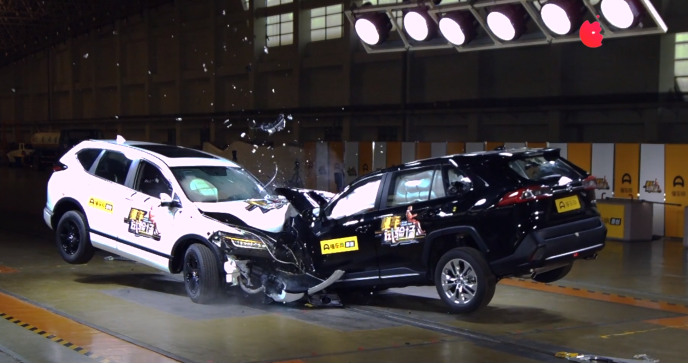
On August 18, its automotive media platform "understanding car Emperor" released a video of a head-on collision between Haoying and Weilanda, which is different from the previous collision standards of testing institutions. The media adopts a 50% offset collision standard of 64 km / h for two cars. This means that during the collision test, both Haoying and Weilanda collided head-on at a speed of 64 km / h and an overlap rate of 50% (driver side), and then evaluated according to the degree of deformation of the car body and dummy injury data.
The models tested this time are GAC Honda Haoying minimum (white car), the 2020 two-wheel drive elite version of 240TURBO CVT priced at 167800 yuan, without head air curtain, while GAC Toyota Wellanda is the second low-equipped (black car), the 2020 2.0L two-wheel drive deluxe version priced at 197800 yuan, with head air curtain and knee airbag.
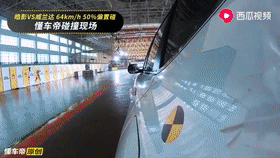
After the completion of the collision test, we can see that the collapse of the two cars is relatively normal, on the surface, there is no obvious hard injury. For Weilanda, all the airbags ejected after the collision, the door on the driver's side could be opened more easily, at the same time, the structure of the external car body was relatively complete, and there was no obvious intrusion into the firewall and A-pillar.
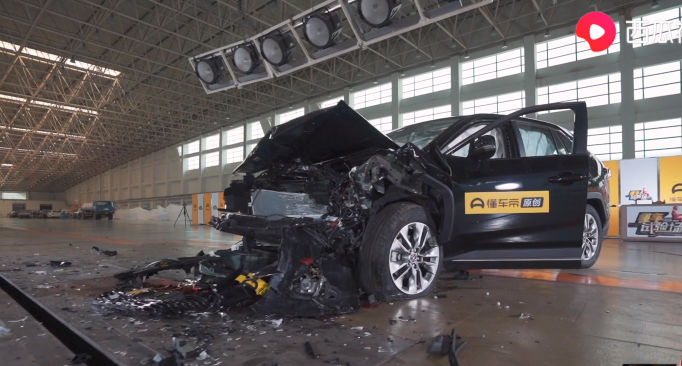
(Willanda)
And Haoying also has no obvious invasion phenomenon, and the collapse area of the front is longer than Weilanda, and the result will be better in theory, but if you look closely, it is found that the steel beam between the cross joint of Haoying A column and B column has been obviously bent, at the same time, there are many deformation depressions on the roof of Haoying car, which extends to the rear. To a certain extent, it can also show that the Haoying car body structure also participated in the collision "energy absorption", and after the disassembly of the vehicle, also confirmed this point, because the Haoying car body structure did appear a large area of deformation.
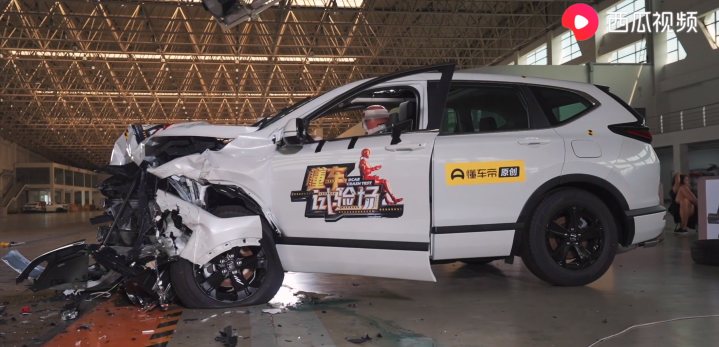
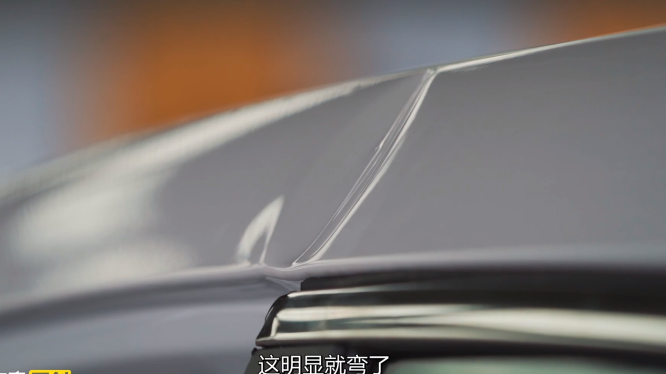
(Haoying)
After the complete disassembly of the collided vehicle, Haoying and Weilanda show two different energy-absorbing structures. In terms of Haoying, from the firewall, the front row, the rear row, and the side of the co-driver who did not have a direct collision, there were varying degrees of deformation, and even the central channel with high strength, as well as the back part of the trunk, were deformed. In this collision, the whole frame of Haoying was deformed in a large area.
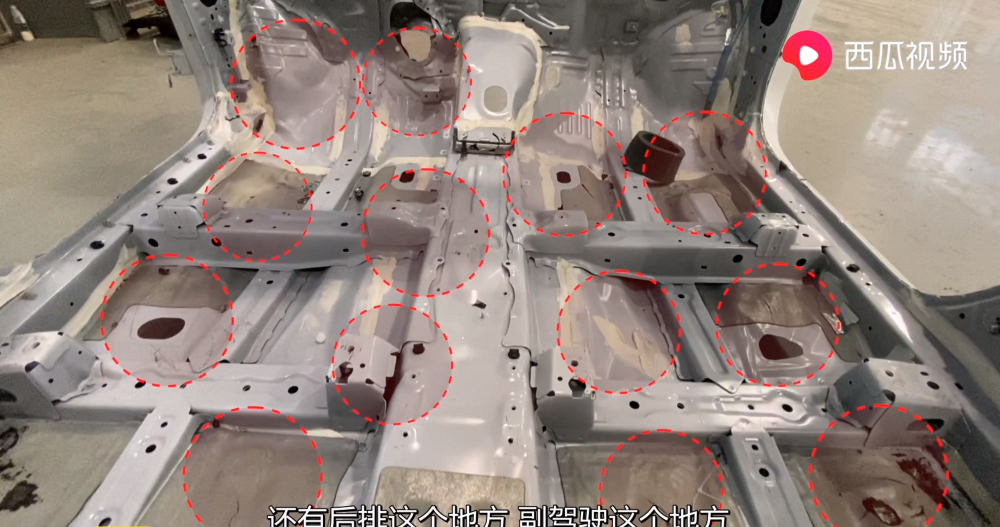
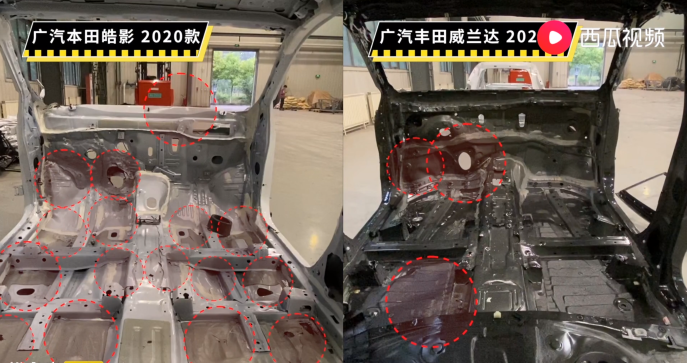
As for Wiranda, it appears to be more regular after the collision, only the front driver's seat and the rear seat are deformed, the rest remain intact, and the structural strength of the car body is guaranteed.
After comparing the car body structure after the collision between Haoying and Weilanda, we can see the great contrast of the energy-absorbing structure. Netizens have different views on who has a safer structure than Wiranda, who is tough and energy-absorbing.
Some netizens believe that the tough car body structure is at least guaranteed not to be seriously deformed, which is the greatest guarantee for the occupants at any time. For the case of Haoying, some netizens think that the collision energy is dispersed and the whole car body is absorbing energy; others said that this also shows that the strength of Haoying car body is obviously insufficient, which leads to a large area of deformation of the car body frame. There is even a view that if the speed is faster, how the Haoying car body will deform has been unimaginable.
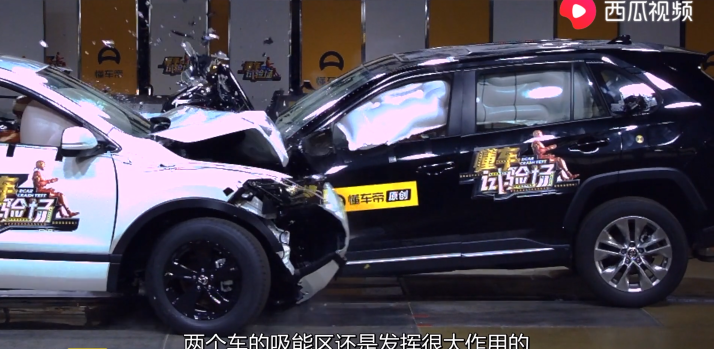
It can be expected that GAC Honda Haoying has once again been pushed to the forefront of public opinion. Following the bending of the A column of Zhongbao Research, Haoying was exposed that the car body structure was deformed by energy absorption in a large area, and consumers questioned the safety of this "special car" and upgraded again.
Haoying is one of the hot joint venture SUV models in the current market, with monthly sales of more than 10,000 vehicles. This result will indeed make many consumers feel cold. According to the latest official sales report of Guangzhou Auto Honda, the sales of Haoying models reached 14208 in July and continued to exceed 10,000, which is already a good result for a new model that has only been on the market for eight months. However, compared with the 20,000 units achieved in June, the sales volume of Haoying in July dropped by 30% from the previous month, and the follow-up market performance is worth looking forward to.
So far, Guangzhou Auto Honda has not officially responded to the incident, and more consumers hope that Guangzhou Auto Honda can face up to the voice of consumers and give a clear statement.
Welcome to subscribe to the WeChat public account "Automotive Industry Focus" to get the first-hand insider information on the automotive industry and talk about things in the automotive circle. Welcome to break the news! WeChat ID autoWechat
Views: 0
*The comments in the above article only represent the author's personal views and do not represent the views and positions of this website. If you have more insights, please feel free to contribute and share.











© 2024 AutoBeta.Net Tiger Media Company. All rights reserved.